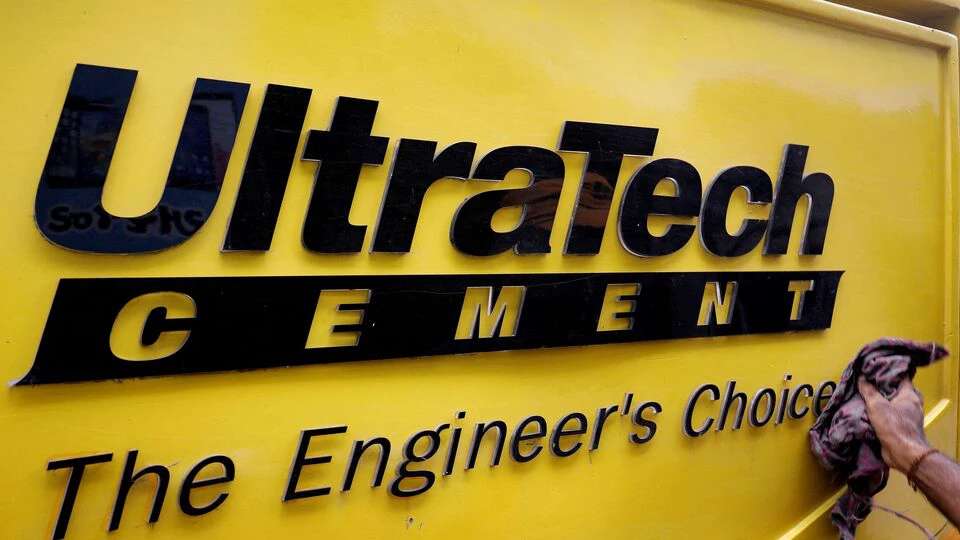UltraTech Cement Ltd, India’s largest cementmaker, reported a sharp decline in net profit for the September quarter sequentially owing to lower volumes and higher fixed costs.
The Aditya Birla Group’s cement arm reported a consolidated net profit of ₹1,238 crore for the quarter, an almost 45% drop compared to the first quarter of FY26, according to the company’s exchange filings. It fell short of Bloomberg’s estimate of ₹1,456 crore based on a poll of 19 analysts.
Higher fixed costs such as cost of materials and employee costs, combined with lower sales volumes, hurt profitability, dragging the Ebitda per tonne down sequentially.
“Maintenance, advertising, and staff costs were slightly higher this quarter, contributing to a delta impact of around ₹200 per tonne. Some of these costs, however, will moderate next quarter,” Atul Daga, chief financial officer at UltraTech said in a post-earnings call with analysts, adding that lower quarter-on-quarter sales volumes impacted operating leverage.
‘Below expectations’
Satyadeep Jain, Lead Analyst for Cement, Metals, Mining & Utilities at Ambit Capital, said, “The actual numbers came in below expectations. The drop in profit was driven by a combination of factors such as pricing pressure, higher raw material, power and fuel costs, lower volumes, which increased fixed cost per ton, higher maintenance costs, and the usual July wage hike and bonus payments at UltraTech.
“On the other hand, the company’s year-on-year profit growth was supported by a rebound in cement prices from last year’s lows and gains from acquisitions.”
The company’s raw material costs rose by almost 1% and employee costs by almost 10% for the second quarter of FY26 compared to the previous quarter. Revenue from operations fell almost 8% sequentially to ₹19,607 crore in the September quarter.
However, revenue from operations grew 20% year-on-year on account of higher pricing compared to last year and acquisition gains. This growth is due in part to UltraTech’s consolidation moves.
The company restated its previous results following the merger of Kesoram Industries’ cement division with effect from 1 April 2024. During the year, it also acquired 75.6% of The India Cements and completed the purchase of Birla White Wallcare Pvt Ltd for ₹234 crore, according to notes accompanying its financials. These results, therefore, are not directly comparable with the prior period.
New capacities
The cementmaker also announced a fresh investment of ₹10,255 crore to expand its cement production capacity by 22.8 million tonnes per annum, including that of its subsidiary India Cements Limited, according to a company statement.
This expansion will be executed through a mix of brownfield and greenfield projects. Commercial production from these new capacities will begin in phases from FY28, taking the company’s total global cement capacity to 240.76 mtpa.
“Our expansion plans are in full swing, and we expect to finish this financial year with 200 million tonnes of capacity”, said Daga. Major projects such as Vadhavan Port, Amravati, the new Mumbai airport development, upcoming data centers, urban real estate projects, and Google’s $15 billion AI hub in Andhra Pradesh are all driving consistent growth and demand in the cement industry, he added.
GST tailwinds
Daga also highlighted that GST 2.0 is expected to boost demand for premium cement as more customers will be able to afford their aspirational brands. The company aimed to consolidate presence in the southern markets in FY25, and is now focusing on expanding further in the northern and western regions.
“With an intent to further strengthen our position in these markets, we are embarking on the next phase of our growth with 22.8 million tonnes of incremental capacity which is a mix of largely brownfield and some greenfield expansions. Out of this 22.8 million tonnes, 18 million tonnes is focused on the northern markets, and 4.8 million tonnes for the western markets,” Daga said.
In August Aditya Birla Group and UltraTech Cement chairman Kumar Mangalam Birla said at the company’s annual general meeting it would end FY26 with 200 million tonnes per annum of capacity, a year ahead of its original guidance of FY27. Managing director K.C. Jhanwar said in his message to shareholders in the annual report that it planned to invest ₹9,000-10,000 crore in capex in FY26.
UltraTech’s domestic grey cement capacity is 186.86 mtpa and with its overseas capacity of 5.4 mtpa, total capacity stands at 192.26 mtpa.
Daga said he expected rural markets to be a key demand driver In the second half of 2025. Jhawar added that the housing sector, particularly rural housing, has seen strong demand, supported by a good monsoon and revised minimum support prices for farmers. On the urban side, changes in personal income tax rates and favourable interest rates are expected to give momentum to demand.
